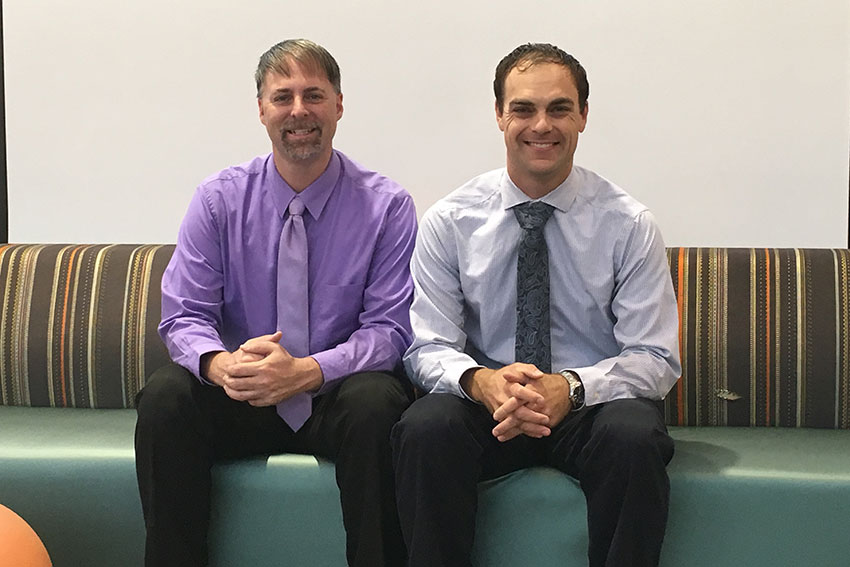Formula for success: Math education faculty earn top grants

Two Bowling Green State University math education faculty were recently awarded coveted grants to help teachers in northwest Ohio learn new strategies to address their students’ mathematical proficiencies and measure their math problem-solving abilities.
Drs. Jonathan Bostic and Gabriel Matney, both associate professors in the School of Teaching and Learning, were awarded a $1.5 million grant from the National Science Foundation (NSF) for their project Developing and Evaluating Assessments of Problem Solving (DEAP), which will allow them to develop and deploy a set of measures for children in grades 3-5 to assess their problem-solving skills related to the math content they learn in schools.
“Problem-solving is important, and so we should be testing it in a reliable way,” said Bostic, who served as the principal investigator on the grant with Matney and former BGSU faculty member Dr. Toni Sondergeld, now at Drexel University.
They have partnered with several local school districts, including Napoleon, North Central, Sylvania City and Springfield Local Schools, to roll out the assessments, which build upon the grant-funded work they have already done creating similar measures for students in grades 6-8. They will work closely with teachers in these schools to ensure there is a robust reporting system and pipeline for ideas and feedback to flow from the classroom to them and back.
“Testing should be part of the learning process,” Bostic said. “Hence, we continue to partner with school districts in order to design the best valid and reliable measures for students and teachers.”
In addition to the NSF grant, the Ohio Mathematics and Science Partnership also awarded them nearly $700,000 for their Common Core for Mathematical Proficiency in Elementary Schools - (CO)2MP project, which will help provide professional development training to teachers throughout northwest Ohio that is aimed at helping students’ in all grades levels improve their overall mathematics proficiency.
Through the training, teachers will gain improved knowledge of the math proficiencies expected by state curriculum standards, allowing them to create learning environments that better enable their students to meet these proficiencies.
“Students need opportunities to develop good mathematics habits in early grades,” said Matney, the grant’s principal investigator. “This training is important because it gives teachers the opportunity to sit down and look at what these proficiencies mean for their students and how they can adapt their teaching to help them meet these standards.”
The teachers will get at least 128 hours of professional development – the equivalent of about three graduate level courses.
“That matters because research has shown that effective professional development needs to be long-lasting and meaningful for it to be effective,” Matney said.
These latest grant awards build on the stellar track record of Matney and Bostic, who have been funded on 10 out of 10 grants they’ve submitted in recent years.
“We’re quite thrilled by both recent awards,” Bostic said. “Ultimately, these grants help so many students, teachers, education professionals and families.”
“These are great examples of the impact the institution is having on improving education in the state,” said Dr. Dawn Shinew, dean of the College of Education and Human Development.
Updated: 12/19/2017 09:17AM
